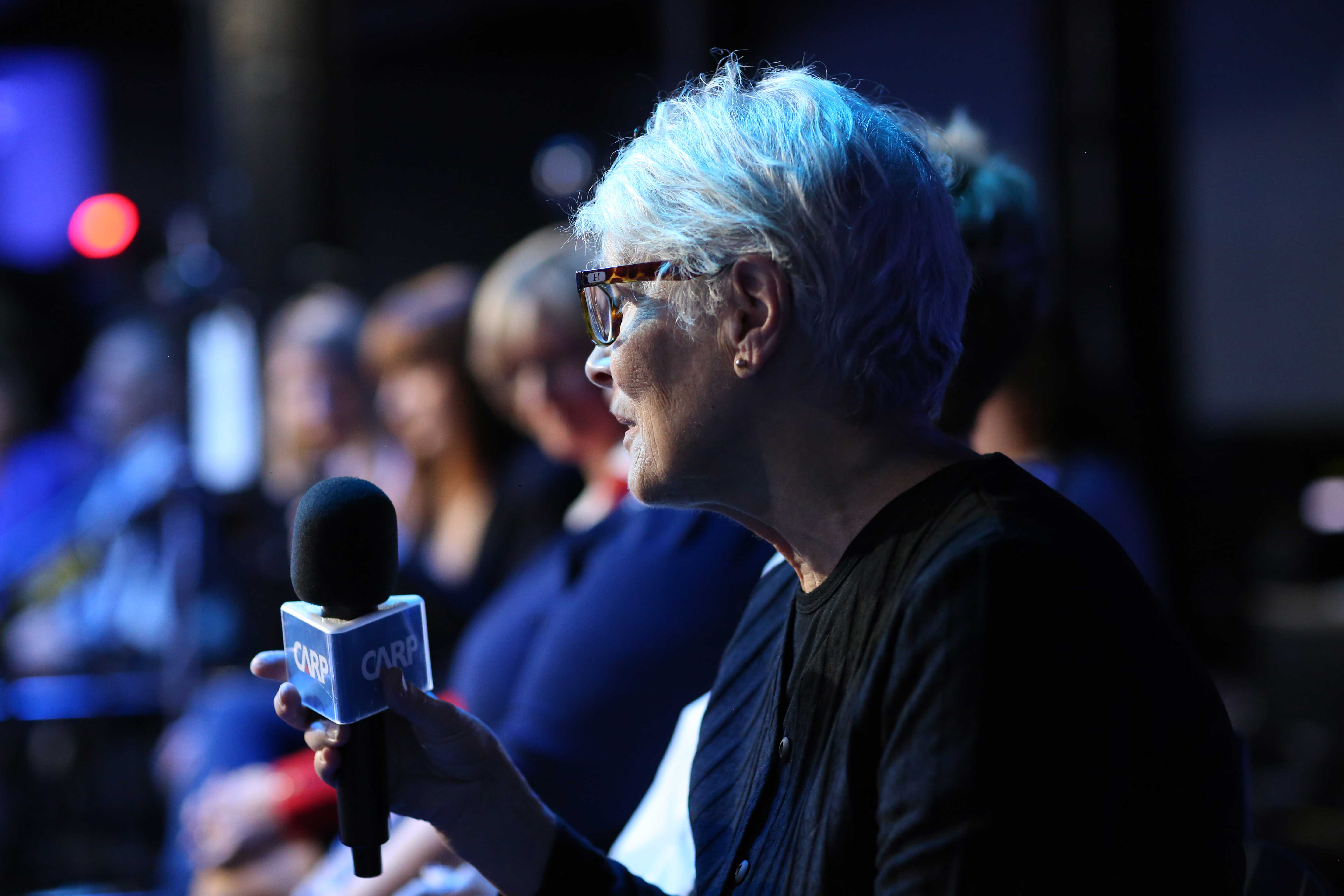National Seniors Day Honours “Trailblazers, Role Models and Unsung Heroes”

Moses Znaimer, CARP President, welcomes Filomena Tassi, Federal Minister for Seniors, to CARP's headquarters in Toronto. Tassi was invited as part of CARP's National Seniors Day celebrations and to participate on a panel discussing ways to solve the problem of social isolation among older Canadians. Photos: Gina Bucci
Every year, Canada sets aside Oct. 1 to celebrate the many ways seniors have contributed – and continue to contribute – to the building our great nation.
“Trailblazers, role models, and unsung heroes, Canada’s seniors have shaped our country in countless ways, and paved a better path for millions of Canadians,” read a statement issued by Prime Minister Justin Trudeau.
National Seniors Day is an important occasion for all seniors but especially for groups like CARP, which is founded on fostering a new vision of aging for older Canadians.
To mark the day, CARP invited Filomena Tassi, the new Federal Minister of Seniors, to its headquarters in Toronto. Tassi took the opportunity to meet with CARP representatives and local chapter members and discuss how she’s ensuring the voice of seniors will be heard in Ottawa.
As well, Tassi took part in a panel discussing seniors’ social inclusion, a topic which she said was “very near and dear to her heart.”

The Minister was joined on the panel by Laura Tamblyn Watts, CARP’s National Director of Law, Policy and Research, Dr. Raza M. Mirza, an expert on the factors influencing late-life social, mental and physical well-being and Diane English, Director of Public Policy and Communications with Parks and Recreation Ontario.
“We’re seeing more and more older adults have fewer touch points with individuals,” said Tamblyn Watts.
New research is showing that living in social isolation means poor health outcomes. “Social isolation,” said Dr. Mirza, “has the impact [on health] of smoking 15 cigarettes.” Another study he pointed to, draws a link between dementia and isolation.
Minister Tassi said that when we look at tackling social isolation, “it’s not just the seniors who benefit from their engagement in our communities, but that we all benefit.”
English pointed out that there are many promising programs across the country that are aimed at ending social isolation. She referred to a Nova Scotia-based initiative called Steps to Connect, which introduces seniors to what is going on in their communities.
The experts also explored ways to end social isolation and engage seniors in society. One key concept was how government and groups like CARP can bring services into the community to ensure that seniors don’t have to live in isolation.

The panel concluded that social isolation among seniors won’t be solved until we can address the issues that contribute to it: ending ageism, combatting elder abuse, increasing access to transportation, providing housing, ensuring a decent living and promoting healthy well being.
Ensuring these standards are in place for seniors must be a priority. Because, in the end the panel concluded, all the great strides in increasing lifespans of seniors mean nothing unless these extra years are quality years.